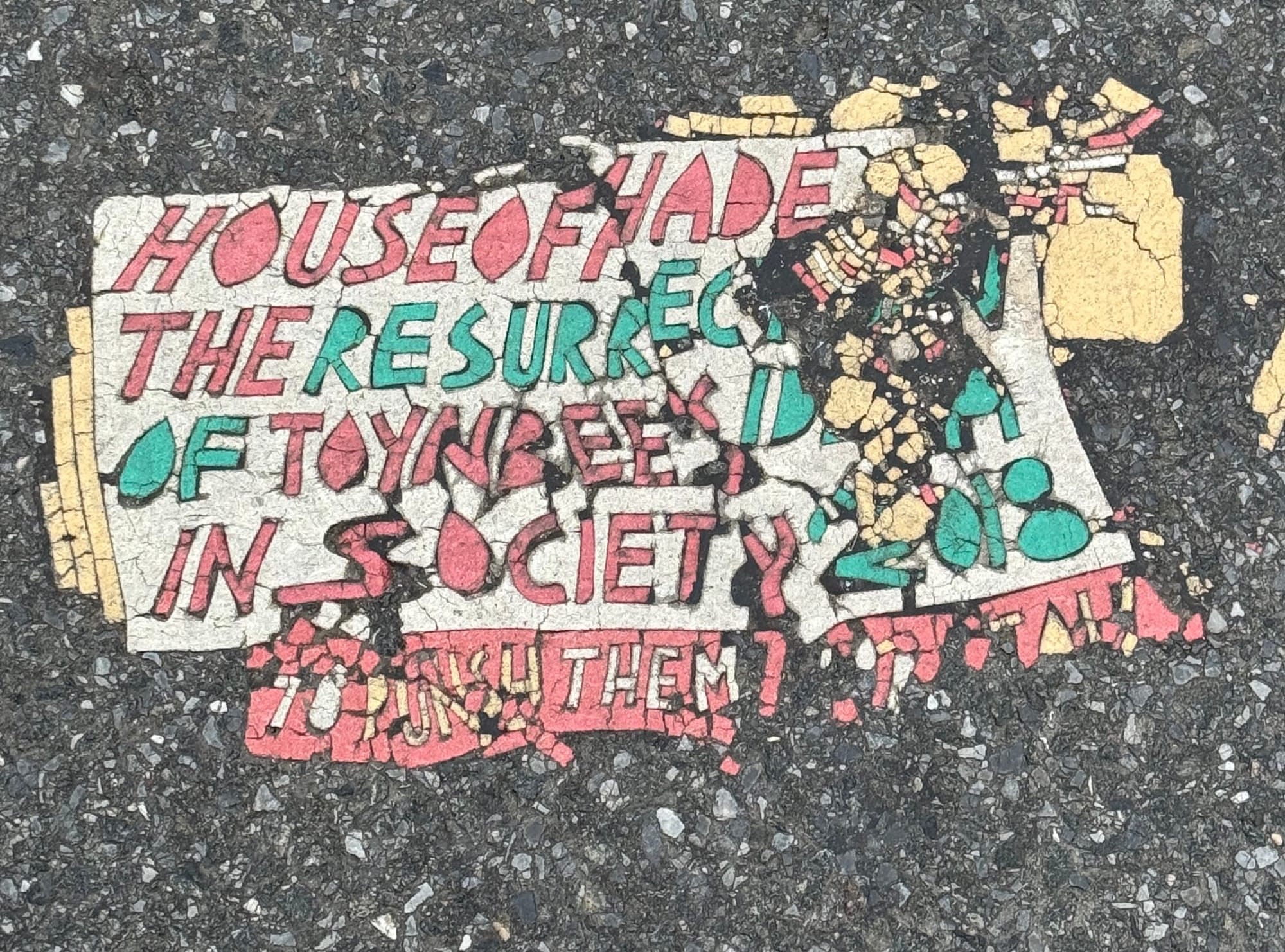
Wandering is Good For You v2
This post was originally known as Wandering is Good for You
For 99% of human history, in the time before agriculture, wandering was a core behavior loop that we used to explore, understand, and influence the world around us.
But in the last few hundred years, we've leaned hard into if/then-thinking, building maps and systems that push us more towards shading in the oval rather than color-outside-the-lines.
Simply put, industrial society has robbed us of our natural proclivity to wander and explore. While we have wider access to information, it is fed to us in structured ways that defeat our efforts to be curious. Overloaded with work, we have little time to wonder at the subtle connections between things, or ponder questions that aren't on the critical path.
On top of this, we're increasingly sedentary, isolated, and increasingly dependent on digital systems for every aspect of life. You can see the wandering-sized hole in our lives.
And even though we're not wandering for life or death - to find a berry patch, a herd of ungulates, or a fresh place to camp - we can simulate the rich experience of our ancestors by simply moving around without a specific purpose, bagging many of the same benefits they enjoyed, including wonder, connection, and self-confidence.
So without further ado here's six ways wandering is good for you.
1 - Wandering Builds Strength and Endurance
Step count. Stability. Stamina. Strength.
It's possible to walk without wandering, and wander without walking, but wandering and walking are deeply intertwined. We evolved as endurance hunters and explorers. Walking a long way is our thing.
A wandering practice makes your body stronger, simply by increasing your step count. And because you're mentally stimulated, it doesn't feel like work or a chore, making it a good habit for people who don't love our modern fitness culture. Add wandering and some weight training, and you're likely to add years to your life.
2 - Wandering Relaxes and Stimulates the Mind
"As the body moves, the brain grooves."
From improved spacial awareness to reduced stress hormones to increased immune response, there's a growing body of evidence linking movement and brain-health.
But wandering works on more than the physical body. It also takes the brain out of its normal loops, bringing the world to life in a way that's only possible with a shift in perspective.
In industrial society, we spend much of our time in beta-dominant brainwave patterns where thinking and worrying are the norm. A good wander shifts these patterns into alpha-dominant brainwave states, and even theta-states, where the focus is more on feeling good, being curious, and absorbing new information.
You feel good after a wander, and the benefits often last for days.
Wandering is a form of freedom. And freedom is relaxing.
3 - Wandering Makes You Smarter and More Confident
When we move around in familiar (and safe) territory, we often fall back on a brain system called the default mode network, which saves mental resources by putting our navigation on auto-pilot.
The problem is that this environmental information can quickly get out of date.
Wandering nudges you off the edge of your mental map, taking you to new territory where the brain has to wake up and pay attention. There are at least three big benefits to this.
First, you experience unfamiliar situations, and learn how to respond to them, giving you valuable insight into how to handle other situations in the future, greatly increasing your self-confidence.
Second, being 'off the map' where there are too many variables for the conscious mind to capture causes the brain to rely more heavily on intuition, causing you to think more inductively.
Third, wander enough, and it'll cause you to confront the beautiful truth: There's always more of what we don't know we don't know than what we do know that we don't know. :)

4 - Wandering Yields Loot
Wandering probably isn't going to make you a millionaire, but it is going to give you a rich life. That's why thousands of humanity's greatest minds have made wandering a central part of their creative lives.
Wandering teaches us to take joy in the little things, so that a free sandwich or a smile from a stranger become more meaningful than buying a Ferrari. Because once you're on the hamster wheel of status and consumption, the only thing that sates is more.
Most wanderers find their wealth in experience rather than material things, and thus are easily amused, entertained, and satisfied. We take great pleasure from these little moments of earned loot, when a kind stranger invites you to see inside a locked room, or offers you a free drink, or tells you a story that makes you laugh.
And because wandering fosters relationships, and thus creates projects and opportunities, it does also sometimes result in cold hard cash.
5 - Wandering Connects You to Other People
Nobody on their way to work has time to stop and chat. But when you're out exploring, the world throws up regular opportunities to interact with other people, people who you might never otherwise interact with.
Sometimes those interactions last for a few moments. Sometimes they turn into lifelong friendships. But they almost always create a small emotional uplift for everyone involved, and help us see the world even a little through each other's eyes.
I live and wander in Manhattan, and I talk to strangers every day, frequently people who live and think wildly differently than I do. I've made hundreds of friends through wandering, and talked briefly with thousands of people on the street, and while I've lost touch with most, every one adds a little bit to my understanding of what it is to be human.
So yes, wandering will earn you new friends. But maybe more importantly, it'll teach you tolerance, compassion, and humility, and these are probably the very human characteristics which will ultimately save us.
6 - Wandering Makes the World a Better Place
Wandering is a revolutionary act.
It literally changes your perception of reality
by pushing you off the edges of your map
causing you to see things
in new and surprising ways.
Wandering also humanizes others, and causes others to humanize you. It's a slow process, but every time you share smiles with someone you don't know, you're making the world a little kinder place.
Plus the owners of the industrial system
want you working
worrying
and buying shit.
They don't want you out in the street, connecting with people you don't know
and realizing that we're all carrying the same burdens.
Finally, because wandering challenges your understanding of reality, it has a way of waking you up
to the subtle ways we manipulate and coerce each other
and the global system of trickery
that prioritizes profits
while maximizing suffering.
So if you really want things to be better on planet earth, stop working so hard, and go wander around a bit more.
Mox
P.S. I do free monthly Street Labs in NYC, where we practice the skills of wandering. Click the button below to subscribe and get invited.
